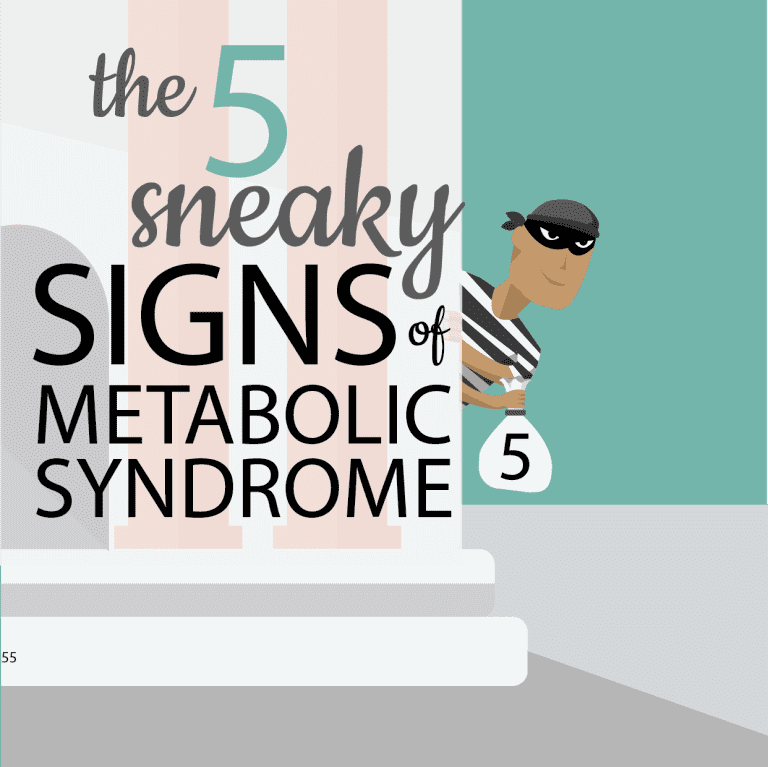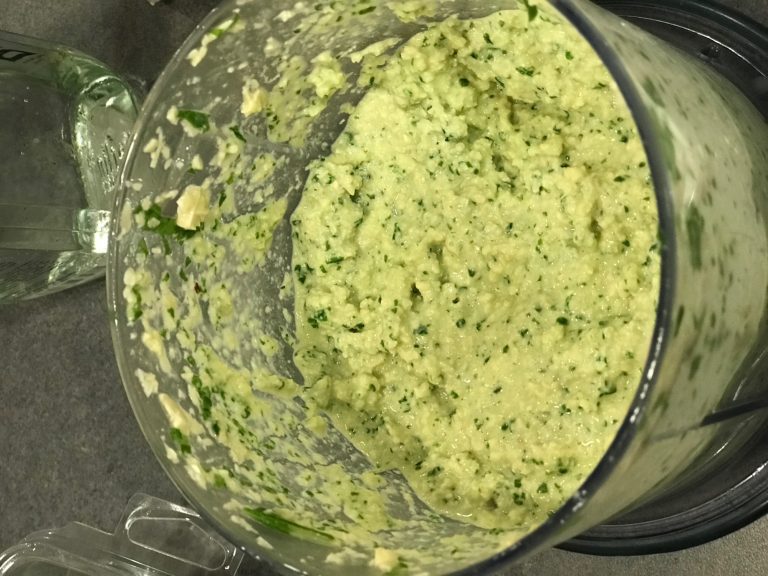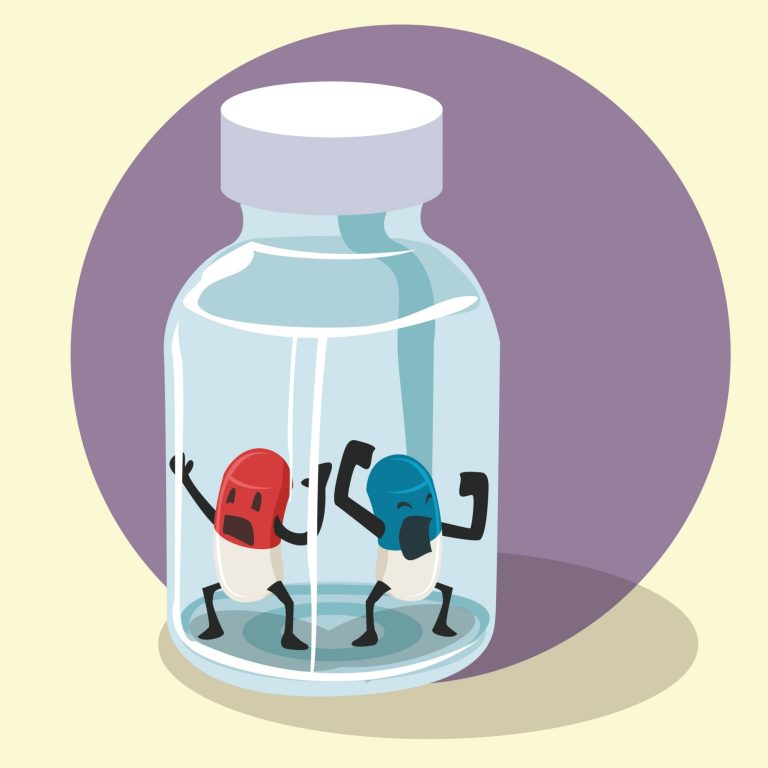6 Sweet Ways to Shake Off Sugar
By Nicole Martin
July 19, 2016

Sugar is addictive. Science is clear and in agreement about this.
A researcher named Dr. Serge Ahmad did an experiment a few years back where he gave mice sugar water and water with dissolved cocaine in it.
In that study, 94% of the mice continually went back for more…. of the sugar water.
You read that right.
Sugar is at least—if not more so—addictive than cocaine.
And above and beyond being simply addictive, it’s also one of the main things driving the obesity, autoimmune, and heart disease epidemics currently running roughshod through our culture.
So, it’s probably pretty obvious that cutting down on our refined sugar intake—or eliminating it altogether—would be a good thing for our health.
But, that’s easier said than done. We’re addicted to it, after all.
So, here are six ways to kick sugar—and take back your health.
PUNT ON PROCESSED FOODS
Back in 1977, the United States Food and Drug Administration (FDA) published their “low-fat diet guidelines” and recommended it to all Americans. The graph below shows pretty clearly that this was the EXACT MOMENT that the obesity epidemic in this country started.
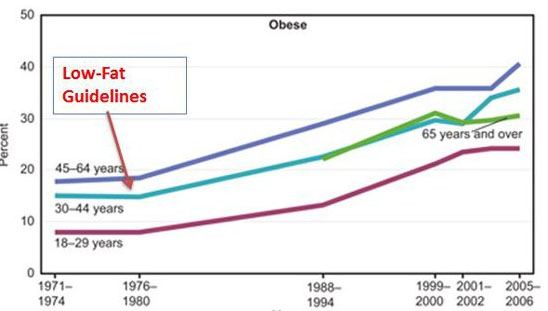
Why?
Because when the food industry began to produce foods that were low in fat, the public balked because the food tasted terrible.
So, to make it palatable— and, oh right, profitable— they filled in the gaps where the fat used to be with two things: Salt and sugar.
And the epidemic started in full.
Which is why you should give up processed foods for good. If it comes in a bag or a box, don’t eat it. When you go to the grocery store, shop only around the perimeter of the store. That’s where they keep the healthy stuff.
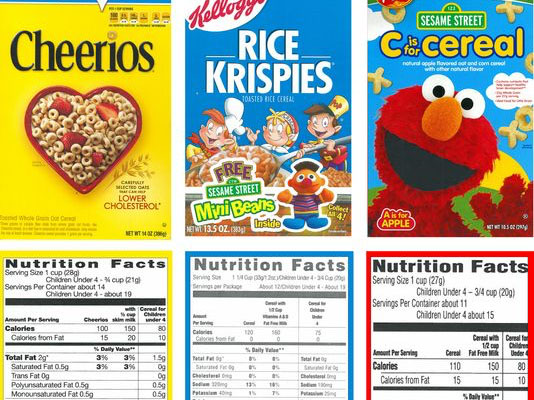
READ THE LABELS
If you’re going to ignore my last point and still find yourself wandering toward the inner aisles of the grocery store, at least go in there with a little knowledge. You should at least know how to identify how much sugar is in what you’re buying. That’s what the labels are for.
So, it should be easy. Look for “sugar” in the print and then make sure there’s a only single digit before the “g” in grams. Simple, right?
Except… labels aren’t always exactly as forthcoming as we’d probably prefer.
For example: There are fifty-six names for sugar.
Fifty-six.
It’s nuts how far the food industry will go to hide the fact that they’ve got you addicted to sugar, and that they only make a profit by making you more and more addicted to it.
Here’s a great infographic from Woman’s Health… use this as a guide the next time you’re looking for what to buy at the grocery store:
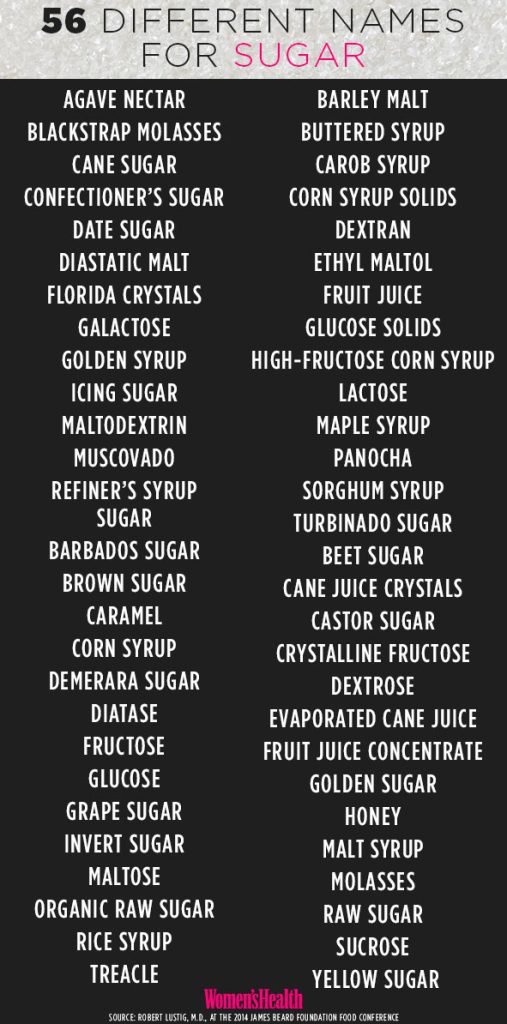
You know what liars do? They call a particular thing by different names. The list above is a way to decode those lies.
Because, as you learned when you were four, lying is decidedly not sweet. Not sweet at all.

IDENTIFY YOUR TRIGGERS
In your quest to avoid refined sugars, one of the most important things that you need to understand from the start is that certain things are going to trigger the craving.
It’s going to be different for everyone, but here are a few common triggers:
+ Coffee
+ Tea
+ Anything high in saturated fats
+ Dairy
+ Stress
+ Etc.
Knowing what’s going to set off your own cravings is an important step. So, identify these as early in the process as possible, and thereby set yourself up for success.
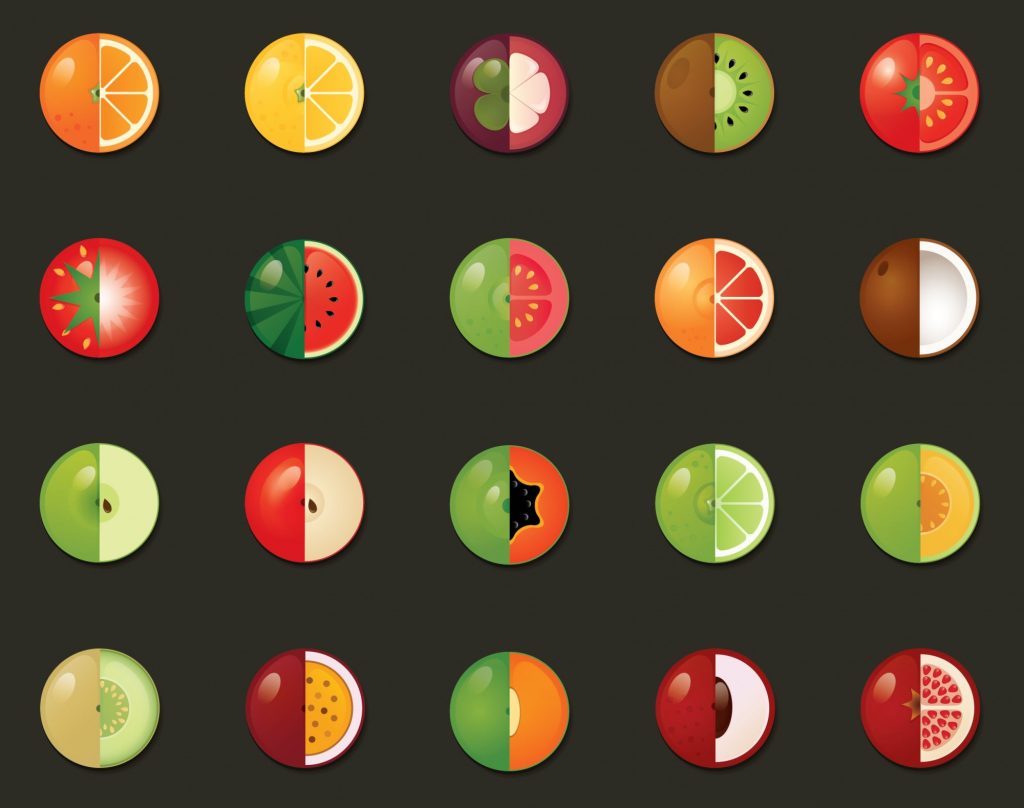
PRIORITIZE YOUR FRUIT
All fruit is not created equal. Fruit contains sugar, of course, but it also contains a lot of other good stuff. And, just like with any other decision that you make in life, you need to find the right balance.
So, in deciding which fruit to eat, it’s a good idea to figure out which fruits are giving you the most good stuff—and the least bad stuff.
Here’s a great list of fruits—ranked from 32 to 1. It factors in calories, sugar content, fiber, antioxidants, and specific levels of vitamins and nutrients.
(Here’s the sneak peak: Blackberries, raspberries, avocados, guava, and strawberries are at the top, meaning “good”; grapes, figs, and bananas round out the bottom, meaning “not-so good.”)
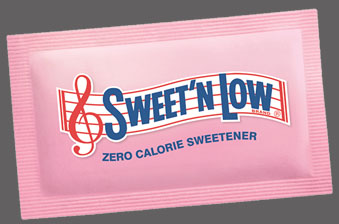
AVOID SUGAR SUBSTITUTES
The main workaround the food industry has given us as consumers for avoiding the sugar that they put in everything is the introduction of “sugar substitutes.” These artificial sweeteners come to us under a variety of names: saccharine, aspartame, and sucralose, to name just a few.
While the medical community, as recently as the the mid-1990s, saw the potential for using these substitutes to get us all off sugar, the real dangers of these chemicals are now coming to light.
New evidence, for example, shows that people who frequently consume sugar substitutes may be at an increased risk of excessive weight gain, metabolic syndrome, type 2 diabetes, and cardiovascular disease.
Oh, and also… these chemicals are LITERALLY neurotoxins.
Which means: Artificial sweeteners are actually worse for you than sugar.
Blue? Pink? Yellow?
The color doesn’t matter. They’re all killing you at the same (rapid) rate.

UNDERSTAND YOUR SWEETNESS EXPERIENCE
Your tongue experiences five specific types of taste: saltiness, bitterness, umami, sourness, and sweetness. But that doesn’t mean that all sweetness tastes the same.
It’s incredible to talk to people who’ve gotten off refined sugar entirely. They all say the exact same thing:
Not only do they no longer crave sugar, they also understand “sweetness” in a different way.
Compared to a Dairy Queen Ice Cream cake, a carrot isn’t all that sweet. But once you kick the sugar habit, carrots (and so many other vegetables) taste incredibly sweet.
The skinny here is that our bodies have been evolutionarily set up to want sugar. The reason for this is because our ancestors—that is, the humans who survived without getting gored by an angry pack of woolly mammoths—sought out the highest energy sources. And those were the sweetest fruits and vegetables they could find. The ones that went for the foods with lower-sugar levels didn’t have the same level of energy— and paid for it evolutionarily.
But—and this is a big but—even though our bodies need sugar to function, that doesn’t mean that we were designed to take in the levels of refined sugar that we currently do.
In 1900, for example, the average American consumed 5 pounds of sugar per year.
In 2000, that number jumped to 150.
That has to change. We’re literally killing ourselves.
But also know this: giving up sugar doesn’t mean that you’ll be craving it all day long for the rest of your life. Instead, you’ll discover that the cravings go away after a week or two, and that the healthy foods you’ve put in as replacements will taste better than you could’ve ever imagined.
I hope you’ll take these simple ways to avoid refined sugar to heart as you look to get out of the rut of negative, destructive habits. Your future—and I’m not exaggerating this in any way—depends on it.
If you need a little guidance, or just want some company as you continue on your health journey, I invite you to join us for a FREE and highly informative dinner.



